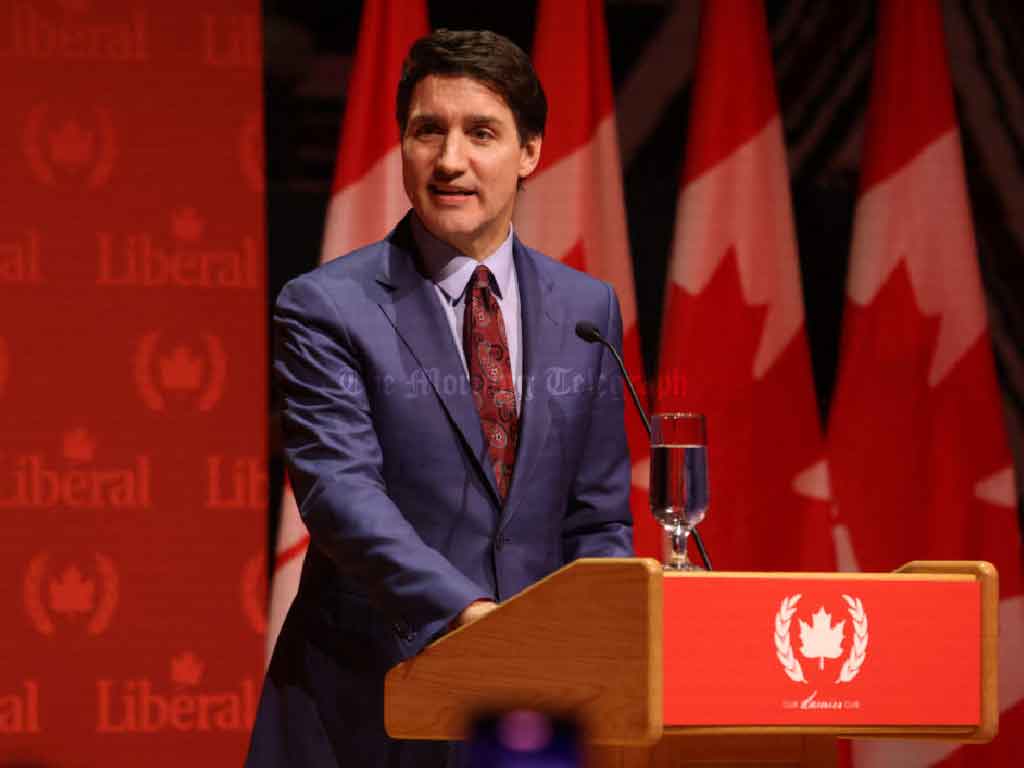
Canadian Prime Minister Justin Trudeau is expected to announce on Monday that he will step down as leader of the Liberal Party, according to a source close to the PM. However, he will remain in his position as prime minister until a new party leader is chosen. The announcement is set to take place at a news conference scheduled for 10:45 AM ET.
Trudeau, who has served as the Liberal Party leader for 11 years and as prime minister for nine, has faced a series of political challenges in recent months, including controversial policies, rising opposition, and plunging approval ratings. The political landscape has grown increasingly difficult for him, with many citing his handling of domestic and international issues as key factors in his declining popularity. His decision to resign could be seen as a proactive step, as Trudeau faces the prospect of losing a general election expected later this year.
In what is widely viewed as a concession to mounting political pressures, Trudeau’s departure as party leader leaves the Liberal Party without a permanent figurehead ahead of the upcoming election. Polls show the Liberal Party is set to suffer a significant defeat at the hands of the opposition Conservative Party, led by the outspoken and right-wing Pierre Poilievre. The federal election is scheduled to be held on or before October 20, but with declining support for Trudeau and his government, the timing of the election could be moved up.
Trudeau’s government was rocked by the recent resignation of Deputy Prime Minister and Finance Minister Chrystia Freeland, who stepped down just hours before delivering her annual fiscal update. In her resignation letter, Freeland criticized Trudeau’s “political gimmicks,” referring to the government’s controversial two-month sales tax holiday and a 250 Canadian dollar ($175) rebate aimed at alleviating financial pressures on working-class Canadians ahead of the election. These policies were seen by many as attempts to regain voter favor, especially as the country braces for significant tariffs imposed by the incoming Donald Trump administration in the U.S.
Trump, who is set to return to the White House on January 20, has vowed to impose a 25% tariff on all Canadian goods, further straining Canada’s economy and international relationships. The former U.S. president has also targeted Trudeau, mocking him on social media, where he referred to the prime minister as the “governor” of the “Great State of Canada.”
Trudeau, who led the Liberals to power in 2015, promised a more optimistic and progressive future for Canada. He made headway on major issues like climate change and addressing historical injustices faced by Indigenous peoples. However, as his term progressed, growing economic discontent and dissatisfaction with his leadership became evident, culminating in a viral exchange between Trudeau and a steel worker who confronted him about the rising cost of living. The worker’s remark, “You’re not really doing anything for us, Justin,” resonated widely and highlighted the frustrations felt by many Canadians.
Trudeau was re-elected in 2021 but was unable to secure a governing majority, and since then, the Conservative Party has gained significant ground, with Poilievre leading the charge. National polling averages show the Conservative Party now holds more than a 20% lead over the Liberals, further dimming Trudeau’s prospects for a successful election bid.
Poilievre’s rhetoric has resonated with a certain segment of the electorate, including individuals aligned with former President Trump’s base, such as Elon Musk, who has publicly criticized Trudeau. Musk, the CEO of X (formerly Twitter), called Trudeau “an insufferable tool” and predicted that the prime minister “won’t be in power for much longer.” Poilievre’s rising popularity and his appeal to right-wing voters in Canada have created a difficult environment for the Liberal Party, as Trudeau’s leadership continues to be called into question.
As Trudeau’s tenure as party leader comes to an end, Canada faces an uncertain political future. While the resignation may mark the beginning of a leadership change within the Liberal Party, it remains to be seen how the upcoming election will unfold, particularly with the growing influence of the Conservative Party under Poilievre’s leadership.




